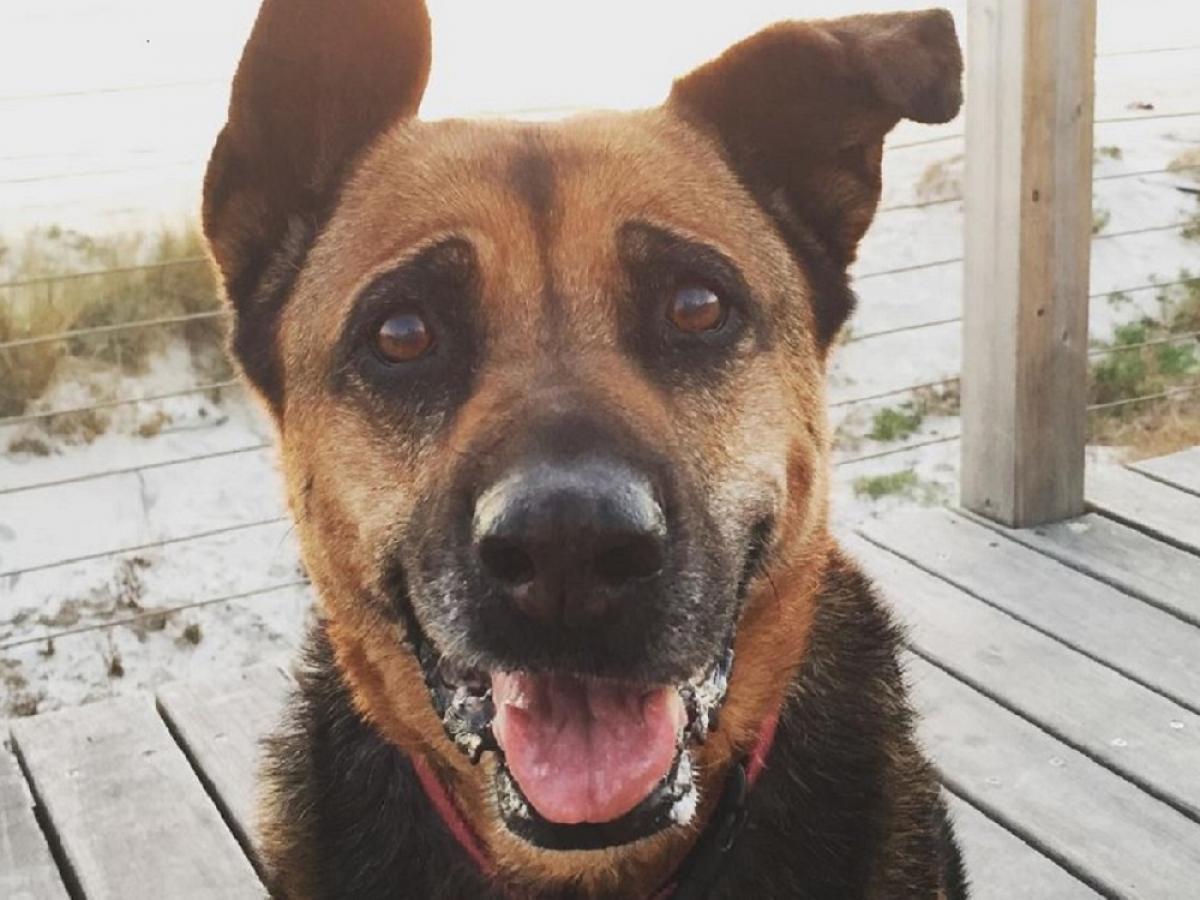
Credit: Tina Easterbrook
A new University of Adelaide-led trial will investigate if a potential treatment for breast cancer in humans can prolong the lives of pet dogs who are diagnosed with the disease.
The FiDo (First-In-Dog) Cure for Cancer trial is an Australian first initiative and will evaluate if the estrogen-blocking medication is more effective than surgery for treating mammary cancer in canines.
“There is an urgent need for an alternative to surgery that will cure mammary cancer in dogs. For many dogs with malignant mammary cancer, the cancer has already spread to other organs by the time of diagnosis, surgery is not curative and the disease can progress rapidly,” said the University of Adelaide’s Professor Wayne Tilley, Director of the Dame Roma Mitchell Cancer Research Laboratories.
“Our aim is to develop a safe medical treatment for mammary cancer in dogs that is affordable, improves quality of life and is also effective in treating cancer that’s spread to other organs.”
Like breast cancer in women, the growth of mammary tumours in dogs is often initiated and driven by the female sex hormone, estrogen.
Researchers will trial a new medication that blocks the cancer-fuelling actions of estrogen by targeting androgen receptors in the body.
Androgens are male sex hormones and androgen receptors (AR) govern how the body reacts to this hormone.
Previous research suggests AR could counter-act the effects of estrogen, stopping breast cancer from spreading.
“We recently published a ground-breaking study showing that drugs that activate the androgen receptor have excellent potential as an effective, well tolerated treatment for most breast cancers in women. We believe this could produce better outcomes for dogs as well,” said Professor Tilley.
Cancer is the leading cause of death among dogs, with almost half of all dogs over the age of 10 developing the potentially fatal disease. Between about five per cent and 25 per cent of female dogs will develop mammary cancer as they age.
“Our aim is to develop a safe medical treatment for mammary cancer in dogs that is affordable, improves quality of life and is also effective in treating cancer that’s spread to other organs.”Professor Wayne Tilley, Director of the Dame Roma Mitchell Cancer Research Laboratories, University of Adelaide.
The University of Adelaide’s Associate Professor Anne Peaston is a veterinary oncologist and clinical lead for the study.
“Currently, some of the medications that are prescribed to treat breast cancer in humans have toxic side effects for dogs and that’s why surgery remains the preferred option for treating canine mammary cancer,” said Associate Professor Peaston.
“However, occasionally surgery can be debilitating and, more importantly, does not eliminate cancer cells that have already spread to other organs, which can ultimately be fatal.”
The FiDo trial will be carried out in three phases. The first involves the donation of tissue for analysis following surgery. The second phase will analyse the effectiveness of androgen medication before surgery, while the third phase is a longer-term study to examine the effects of the treatment on quality of life and cancer recurrence.
“AR medication has high potential to treat the disease both in the mammary gland and elsewhere in the body,” said Professor Tilley.
“Importantly, the results of this study could not only benefit dogs but could also inform how best to use this treatment for women with breast cancer.”
Initially, 60 canine patients with mammary cancer are needed for the collaborative study, which is run by the Dame Roma Mitchell Cancer Research Laboratories, the School of Veterinary Sciences and vets across Adelaide.
The clinical trial is planned to commence in mid-2023.








